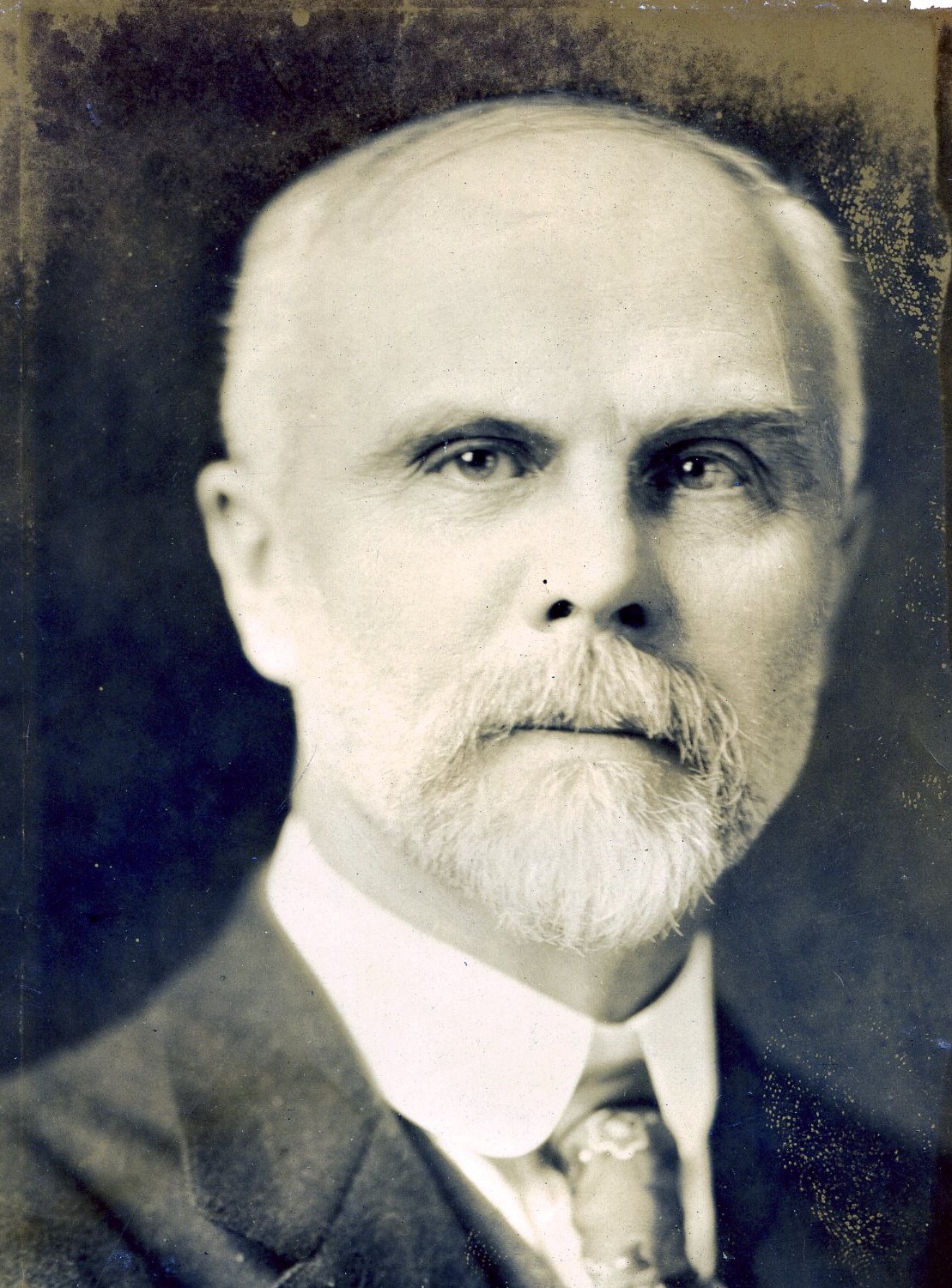Member Directory,
1847 - 1922
William Darrach
Surgeon
Centurion, 1921–1948
William Barclay Parsons and George E. Brewer
Philadelphia, Pennsylvania
Greenwich, Connecticut
Age forty-five

Century Memorial
William Darrach. [Born] 1876. Surgeon.
A Protestant may, perhaps, be excused if his hagiology is not wholly orthodox, if his knowledge of the forms of and rules for canonization is not complete. For, at any rate, he can say with truth that he goes back to the days of a primitive Christianity, of one church, when canonization was not a matter of rules laid down by ecclesiastical lawyers but of sympathy and reverence and love, of great deeds, of wonderful understanding, of humility. In this spirit, as of long ago, let us consider Bill Darrach for sainthood!
You must not get the cart before the horse. You must remember what Froude said: “Men did not become saints by working miracles; but they worked miracles because they had become saints; and the instructiveness and value of their lives lay in the means they had used to make themselves what they were. . . .” Nor must you think my suggestion irreligious, as again I shall bring Froude to witness it is not: “Religion has grown such a solemn business with us, and we bring such long faces to it, that we cannot admit or conceive to be at all naturally admissible such a light companion as the imagination!” Then there is another Protestant idea that has to be cleared away; that the lives of the saints were always simple, often childish, seldom beautiful, when, as a matter of fact the saints often were robust men, men that we would call modern, men who did great deeds with high gusto.
All right! Let’s make the application to Dr. Darrach.
This is the man, more than any other one man, who is responsible for the successful alliance between the Presbyterian Hospital and the College of Physicians and Surgeons, for the implementation of that by the concept of the great Medical Center on 168th Street, for the raising of $30,000,000 with which to make it real. Like the saints of old, he was not good because he accomplished these things, he accomplished them because he was good. It was all the triumph of character and brains: he had such qualities of judgment, such a warmth of personality, he was such a good surgeon, he was so strong and kindly a leader, he was so utterly devoted to his tasks, so unendingly generous to the afflicted that he, and only he, could conceive, plan and create one of the mightiest institutions for good that this city has witnessed in formation in our time.
Gentlemen! I give you the concept of St. William, Saint Bill de Darrach.
Nor is this as far-fetched from Bill’s thinking as you might suppose. I have been privileged—and this no cliché—to read his address on “The Communion of Saints” and I shall read you the first and last paragraphs:
“Certain religious bodies bestow the name of saint upon those whose lives have brought glory to the church and whose examples and activities have made better those who have come under their influence. . . .
“Whether we believe in the after life or not, or whether we feel any sense of nearness to those who have departed, we all acknowledge that what they leave behind—of either word or deed—can continue their influence on us and on other generations. Therefore while today we publicly, as a University body, honor this group of saints, may we not also determine as individuals and in private that we will prolong and increase their influence by some form of sympathetic intercourse—by communion—with them or with their works.”
But this is overgenerous: the only saint among them was the speaker himself—Saint Bill. And. there is just one more point: the address is dated 1928 which proves, if proof be necessary, that as said before men do not become saints by working miracles: they work miracles because they have become saints.
Source: Henry Allen Moe Papers, Mss.B.M722. Reproduced by permission of American Philosophical Society Library & Museum, Philadelphia
Henry Allen Moe
Henry Allen Moe Papers, 1948 Memorials


